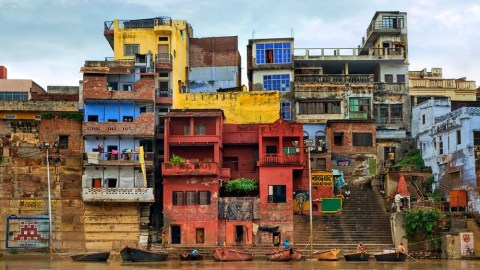Google Earth Used As Tool To Rehabilitate Slums

What is the Big Idea?
The slums of Sangli, a city in southwestern India, is nothing more than a patch of blank space on a map. But thanks to Google Earth images, new information about these forgotten dwellings have emerged, according to Le Monde. Distinct borders and other identifying characteristics from the satellite images are helping the people at Shelter Associates, a Pune-based NGO, rehabilitate the slums.
Read the full story in English or French.
What is the Significance?
“Google Earth’s maps are true to reality. They help us reshape and rehabilitate the slums in a way that makes sense within the overall city plan of Sangli,” says Pratima Joshi, the director of Shelter Associates.
The NGO takes into consideration necessities beyond basic plumbing and a roof that isn’t leaking. “They need to be relocated to a place nearby so they don’t lose their jobs — the salary of a domestic worker, a chauffeur or a security guard won’t stretch to pay for two bus tickets a day. In Delhi, families who were relocated in comfortable houses in the suburbs returned to the city within a few weeks,” according to Le Monde.
The satellite images help Joshi’s team calculate distances and map out relocation spots. “Added to the information provided by the maps themselves are precious details gathered by field research teams about each existing family dwelling, such as whether or not it has electricity and running water, the size of the family living in it, and their caste.”
Could this rehabilitation model be adapted elsewhere?
“It would be possible, but more difficult in big cities because of high cost and the rarity of available land,” Joshi admits. Her NGO has mapped a slum in Indonesia, and is scheduled to rehabilitate five slums in Pune, India’s seventh largest city.





